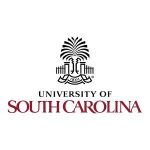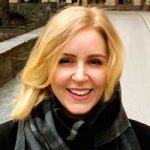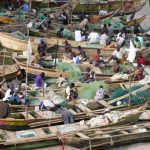Postdoctoral Fellow on Stewardship of Marine Social-Ecological Systems at the Stockholm Resilience Centre under the Nereus Program.
Closing date: 2016-12-22
Project description
The Nippon Foundation-Nereus Program is a research and scientific leadership program in sustainability science. It is led by the University of British Columbia and developed in collaboration between Princeton University, Duke University, the UNEP World Conseration Monitoring Program, Cambridge University, Utrecht University and the Stockholm Resilience Centre. The Nereus Program supports leading young scholars operating at the knowledge frontiers on climate and ecosystem models, management and governance of marine social-ecological systems, and aims to integrate natural and social science research of relevance for future stewardship of marine social–ecological systems.
The selected candidate will be a Nereus Senior Fellow and part of the Nereus group at Stockholm Resiience Centre, led by Professor Carl Folke and Associate Professor Henrik Österblom, working in close collaboration with two Nereus Fellows. The selected candidate is also expected to collaborate with the Global Economic Dynamics and the Biosphere Program at the Royal Swedish Academy.
Background
The global social–ecological system is changing rapidly. Global changes from human activities include profound alterations of ecosystems and the services they provide to humanity. Human social systems are challenged in developing effective management and governance systems for dealing with the situation. At the same time, we have increasing evidence that the connectivities between geographical scales is changing the way humans interact with the planet. An increasingly intertwined and interconnected system is creating novel opportunities for change and stewardship.
The emergence of increasingly large and powerful transnational corporation represent a distinguising feature of an intertwined global system. Globally operating seafood corporations has been described as “keystone actors”, with a disproportionate ability to influence change and potential to operate as leaders for developing marine stewardship. Such companies dominate global production revenues and volumes, control globally relevant segments of seafood production, connect ecosystems globally through subsidiareis and influence global governance processes and institutions. Despite their central importance for the future of marine social-ecological systems however, very little attention has been directed at their dynamics and relevance for stewardship of marine social-ecological systems.
The goal of this postdoc is to advance the research agenda on transnational seafood corporations in relation to global stwewardship of marine social-ecological systems, and integrate such developing understanding in the Nereus Program. The candidate will be working in close collaboration with governance scientists from diverse disciplines and is expected to primarily explore ways to integrate data and methods from organisational science and finance.
Main responsibilities
Working with an international team to:
- Understand the role and influence of transnational corporations on global marine governance, including how they shape and develop the strategic direction of their operations and influence decision making and policy implementation in related institutions.
- Investigate how “keystone actors” are or can be influenced by different governance mechanisms, including informal coalitions, social norms, global conventions, shareholders and investors, or credit rating agencies.
- Investigate how such observed dynamics contribute to building resilience, adaptive capacity and transformative capacity in the seafood sector.
- Investigate seafood industry structure and evolution of norms from a complex adaptive systems perspective.
- Investigating the role and actvities of the seafood industry in relevant formal institutions, such as Regional Fisheries Management Organizations, RFMOs
- Investigate the emergence, evolution and effect of industry-led sustainability coalitions, e.g. by carrying out semi-structured interviews with industry leaders
- Investigate interactions between seafood companies, their owners, investors, credit rating agencies, insurers and regulators, using existing and developing databases.
Specific tasks:
Qualification requirements
Researchers are appointed primarily for purposes of research and must hold a Swedish doctoral degree or an equivalent degree from another country.
Assessment criteria
The degree should have been completed no more than three years before the deadline for applications. An older degree may be acceptable under special circumstances, which may involve sick leave, parental leave, clinical attachment, elected positions in trade unions, or similar.
In the appointment process, special attention will be given to:
- Broad background in Sustainability Science
- Experience and awareness of seafood production and global marine governance issues
- Knowledge of social-ecological resilience, globalisation and transnational corporations
- Ability to take initiative and work independently and as part of a team
- Record of publications in scientific journals
- Ability to design, manage, and help lead workshops
Terms of employment
The position involves full-time employment for a maximum of two years. Start date as per agreement.
Further information and application details can be found on the Stockholm University website.







